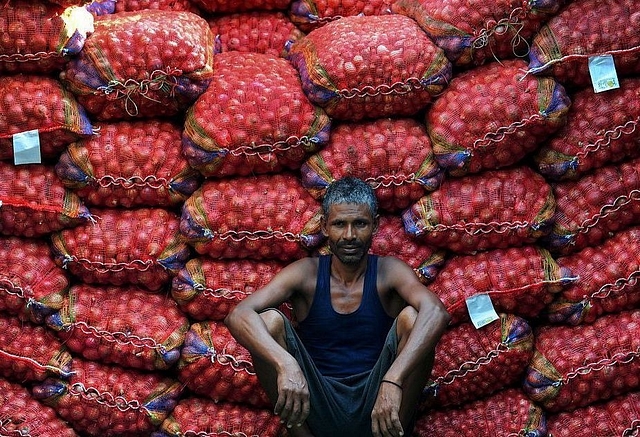
Onion Export Ban: Modi Government Has Just Undercut Its Own Farm Reform Credentials
Agricultural reforms are never going to be painless. In the short run, they will impact powerful traders or APMC workers or someone else in the supply chain.
But if we want Indian farms to become more efficient and capable of earning higher income to those dependent on it, market reforms are the key.
The Narendra Modi government, which has expressed serious commitment to doubling farmers’ incomes by 2022, has effectively damaged its own policy credibility by banning exports of onion and placing stock limits on wholesalers and retailers.
Politicians and bureaucrats love to ban this or that, as if this will solve any problem. They love bans for the simple reason that the action is visible to the public, and they can, at least temporarily, be lulled into believing that something is being done to address concerns.
In the case of onion, the action has been prompted by prices crossing Rs 80 per kg in Delhi. Prices have risen despite tenders being floated to import onions, the release of nearly 18,000 tonnes of onion from the buffer stock, and the imposition of a minimum export price of $850 a tonne.
The shortage is the result of last year’s drought and this year’s delayed monsoon in the main onion-growing areas of the country (Maharashtra, Karnataka, Gujarat, Madhya Pradesh, Rajasthan, Bihar and Uttar Pradesh), says an Indian Express report. The situation worsened as late rains in September delayed crop arrivals from Karnataka. New crop from Maharashtra will start trickling in only from end-October.
The onion crisis and the government’s response to it clearly establish what is wrong with our agriculture policies: the state actively impedes the forces of supply and demand from doing their magic. It is fine to have buffer stocks to moderate extreme price volatility, but it makes no sense to try and ban exports (or imports) overnight to appease either the urban consuming classes or the rural producing ones (ie, farmers).
While it is fair to say that the urban poor cannot afford sharp spikes in prices, surely onion is not a commodity whose temporary shortage will drive them to starve. If the state is going to interfere with market price movements whenever the farmer looks like getting a good deal from price movements, it will be doing the cause of agriculture reforms incalculable harm. Not only will politicians face a perpetually surly farming community, but demands for loan waivers, subsidies and handouts will accelerate.
A sound policy to give farmers a better deal must mean the abandonment of stop-go policies on exports and imports, and avoiding market disruptions through the imposition of stock limits. But this is what we repeatedly come up with, as political needs overwhelm policy credibility. No agriculture policy can work without the market being allowed to play their mediating role between demand and supply.
Last year, the Maharashtra legislature approved amendments to the Agricultural Produce Marketing Committee (APMC) Act, but even before the legislative council (the upper house) could pass it, the bill was withdrawn due to protests from traders and loaders.
The intention was to amend the Maharashtra Agriculture Marketing (Development and Regulation) Act, 1963, so that farmers could sell essential commodities outside APMCs, but traders and mathadi workers (the head loaders) protested, and the bill was shelved before its final approval in the legislative council.
Agricultural reforms are never going to be painless. In the short run, they will impact powerful traders or APMC workers or someone else in the supply chain. But if we want Indian farms to become more efficient and capable of earning higher income to those dependent on it, market reforms are the key.
The Modi government’s knee-jerk response to spiralling onion prices is not what the doctor ordered.